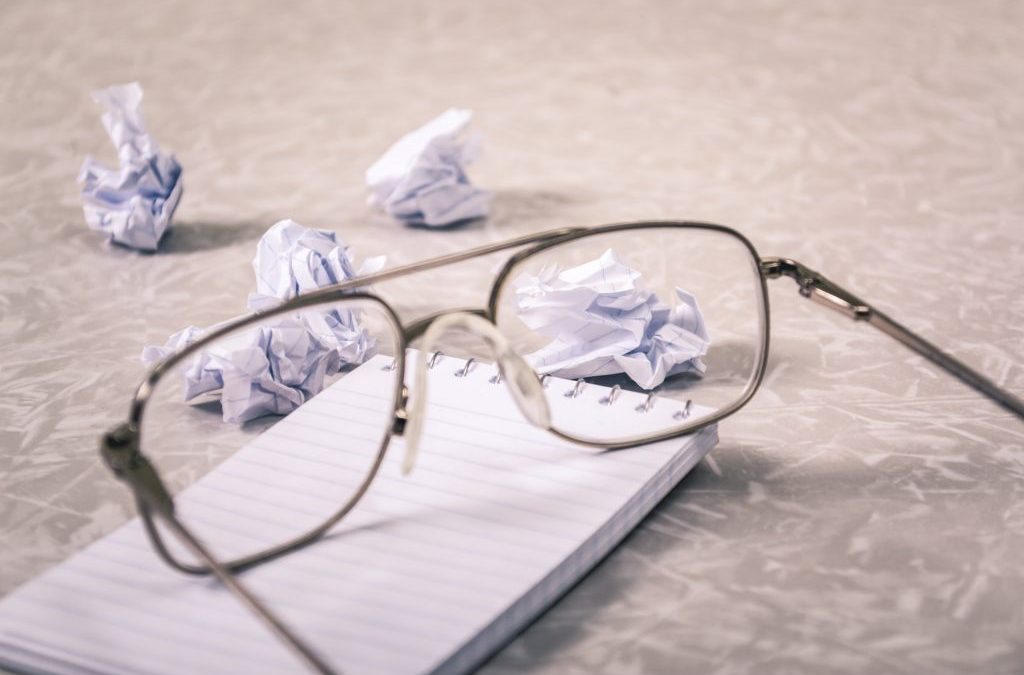I used to dread revision.
The more I’d try to fix my story, the more lost and frustrated I’d become.
After dozens of rewrites, and convinced my story was an irreparable mess, I’d shove my story into the drawer and move onto the next new draft.
Which would lead to more revision. More confusion and frustration. Utter despair.
Fast forward to today:
Rewriting is not only manageable, it’s, hands down, my favorite part of the writing process.
To quote Bernard Malamud, revision is for me, “one of the exquisite pleasures of writing.”
What changed?
My misconceptions about the writing process. And some gradual, steady realizations.
Writing is Rewriting
I used to get discouraged whenever I found that my first, second, or third draft needed more work. I thought rewriting meant my work was a failure. Or that I lacked talent.
I’d look at a story from a workshop, or read a magnificent novel and think, Wow. I wish I could write like that. Writing must come so easy to him.
Here’s what I’ve learned:
Every piece of literature we love and revere has been written under incredible doubt, frustration, confusion, and many, many, many rewrites.
Hemingway rewrote the last page of Farewell to Arms 39 times before he felt satisfied.
Dorothy Parker said it typically took her six months to write a short story.
And John Irving says that more than half, maybe even two-thirds of his life as a writer is spent rewriting.
Once I banished the misconception that there was a distinction between writing and rewriting, I was able to stop chasing the result and just flow with the process.
I learned to embrace chaos. To trust that some kind of shape, order, and relevance would, in due time, emerge from an inchoate mess of imagery, episodes, memories, and abstractions.
And I stopped berating myself for not having produced a brilliant draft right out of the gate.
Our First Draft is the Raw Material
It flows. It’s cathartic. Exhilarating. It feels brilliant. And it is.
But rarely do we get to write a first draft and say we’re done.
That’s because our first draft is for telling us what our story wants us to say.
Revision is where we dive back into our material and see what the work needs. It’s where we expand, enhance, refine, and crystallize what’s inherently there.
Revision is an Investigation
For years, my biggest misconception about revision was that it was about “fixing” my story. Doing it over.
My job was to alter, amend and correct all that my teachers and peers had prescribed as “problematic.”
But the harder I tried to improve my story, the more disconnected I felt from it. And the farther away I strayed from the internal impetus that had driven me to write it in the first place.
Once I understood that revision wasn’t so much about changing my story — that it was more about giving it air and letting it breathe — I gained much more control over my material.
Revision isn’t just about retooling sentences and paragraphs, changing words, fine-tuning grammar, cutting and adding scenes. That’s an essential part of it, sure.
But revision is also about probing what’s already on the page, however submerged it might be at the moment. It’s about digging deep, learning not just what we’re writing about, but why it matters to us.
Because if we don’t know the what and the why, all the changes we make to structure, word choice, description, and so on, don’t bring us any closer to the story we were meant to tell. They might even lead us farther astray.
Revision Is a Receptive, Intuitive Act
Listen to your draft. Our work is smarter than we are. Embedded inside it are clues to what our story is trying to become.
Consciously or unconsciously, all those disparate images, symbols, objects, and memories you dialed up made it onto the page for a reason.
When reading your work, tune in to the recurring elements, images, and so forth that strike thematic chords. Which of these have an emotional or psychological charge? Unwrap them. Even the most seemingly random detail can unlock the emotional essence of a scene. Examined closely enough and from enough angles, a single image can bear the meaning of your entire story.
Rewriting is Essential
That’s because we evade our material more than we realize.
We’re often motivated to write because of certain memories, emotions, and events that are far too powerful and complex to be fully grasped or articulated in our early drafts.
Each time we revisit our material, we gather more courage and momentum to dive a little deeper.
And if we stick with it, we come out on the other side with something coherent, unified, artful, and above all, moving.

